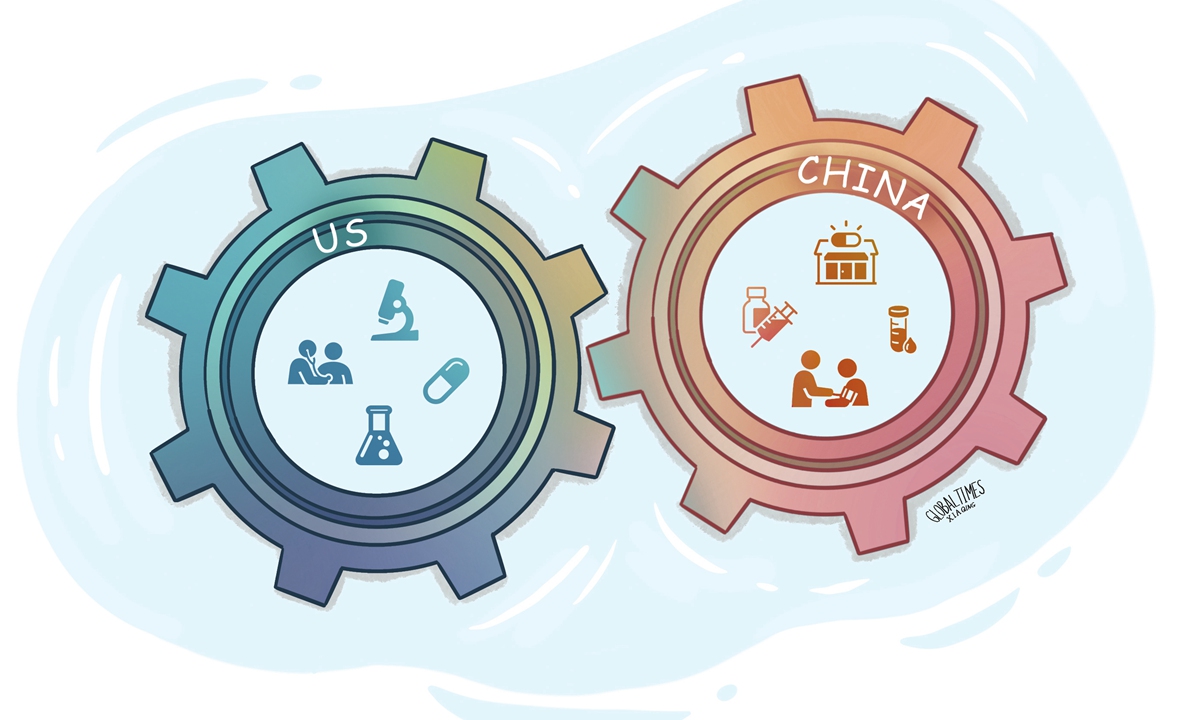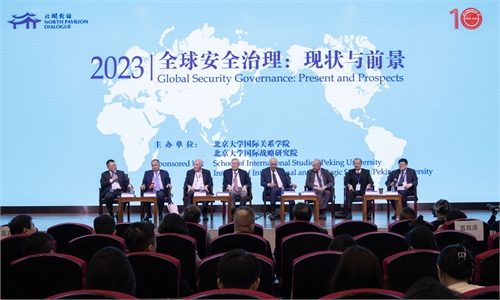Chinese ALS patient's journey highlights importance of China-US cooperation

Illustration: Xia Qing/Global Times
The heartwarming story of a Chinese ALS (Amyotrophic lateral sclerosis) patient has recently captivated thousands of netizens in China.Cai Lei, a former vice president of JD.com, one of the world's largest e-commerce companies, shared his journey battling this untreatable and terminal illness.
After four years of fighting the disease, Cai announced on October 28 through a short video platform that his medication had proven effective, and he was experiencing improvements in some of his bodily functions.
ALS is a rare disease with a grim prognosis, with patients typically surviving only three to five years after diagnosis. The National ALS Registry, which collects data on ALS patients in the US, reported an ALS prevalence rate of between 5.0 and 5.2 per 100,000 people in 2014-2016. It was roughly estimated that there were around 200,000 ALS patients in China.
Cai, who has been battling the disease for four years, has dedicated a significant amount of personal and charitable funds, totaling over 1 billion yuan ($136.6 million), to research and development. He has also established the world's largest private scientific research platform for patient data and set up three foundations related to the disease.
Over the past four years, Cai and his team have been seeking support and cooperation from scholars and organizations in the US, Germany and other leading countries in this field of research and development.
In August of this year, his team established a collaboration with a US research institution, preparing for the transfer of the US research team to China for joint research and development.
In a recent video, Cai shared that he had discovered a pharmaceutical company in the US that made a breakthrough in treatment nine years ago. But, the company had to halt its research due to a lack of funding.
Cai revealed that he decided to cooperate with that company and invite them to come to China because behind him are hundreds of thousands of Chinese patients.
Despite four years of struggle, progress has been made. However, concerns remain among those interested in China-US relations regarding potential obstacles to biotechnology cooperation due to the US policy.
The treatment of ALS involves cutting-edge technology such as cell therapy, gene therapy and artificial intelligence. These are key areas controlled by the US, which is currently tightening its high-tech restrictions on China.
The US has implemented policies restricting China's involvement in various industries, including biotechnology. Measures such as establishing the National Security Commission on Emerging Biotechnology and the Disruptive Technology Strike Force highlight the US government's efforts to control technology transfer to China.
Furthermore, instances like the rigorous scrutiny over the acquisition of UK-based biotech company F-Star by China's Sino Biopharm demonstrate that political and policy factors play a significant role in impeding China-US biotech cooperation.
Some US media outlets have warned that the biotech sector could become the next battleground between the two superpowers, similar to what happened in the semiconductor industry.
The improvement in Cai's condition is influenced by several factors. First, ALS is a terminal disease that affects both China and the US, prompting both countries to seek breakthroughs in research, and these breakthroughs interact with each other.
Second, capital and technological cooperation between the two nations in biotechnology have become highly interconnected.
Third, while the US leads in biotech research and development, China's vast market and dominance in big data make it indispensable for the development of US biotech companies.
Lastly, advancements in biotechnology contribute to the well-being and survival of humanity, making it a "peaceful cause" that fosters human development.
Through these dimensions, we can perceive the global significance of the China-US relationship.
Cai's case offers a unique perspective on China-US relations, showcasing the importance of cooperation rather than severance.
Let us follow Cai's treatment journey to observe how the relationship between China and the US evolves.
The author is a senior editor with the People's Daily, and currently a senior fellow with the Chongyang Institute for Financial Studies at Renmin University of China. dinggang@globaltimes.com.cn. Follow him on X @dinggangchina


